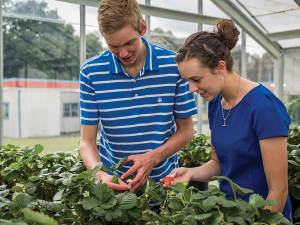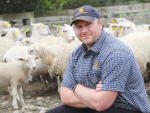The horticulture sector aims for a $20 billion increase in export earnings by 2030.
It is the key driver for primary industry growth identified by the Ministry of Primary Industries, providing safer, reliable, and trusted products around the world.
New Zealand's economy is being diversified through horticulture and it is shown to have potential to do likewise in traditional and non-traditional horticultural areas in of land traditionally not used for horticultural production.
New Zealand's horticultural industry is diverse: exports are dominated by wine, kiwifruit and apples but growing rapidly in significance are avocadoes, potatoes, blueberries and cherries.
Employment and career opportunities are many and diverse with demand for graduates, in New Zealand and internationally far exceeding supply.
Massey University ranks first in New Zealand for agriculture, horticulture, forestry and 34th in the world - according to the just released QS World University Rankings by Subject (2020).
Massey University is the only New Zealand university offering a dedicated degree in Horticultural Science. This degree was co-developed with the Horticultural Capability Group and is fully supported by the industry to train future leaders. The flexible degree programme can be completed internally on the Palmerston North campus or via distance either full time or part-time.
The degree is interdisciplinary - a key feature - combining science, technology and business. It covers the whole value chain, from breeding and plant growth to the final consumer in domestic and international markets.
Our graduates have priority in the job market and their careers are accelerated due to the wide range of disciplines, knowledge and experience they gain during their study. This includes plant biology and crop production, soil and water management, plant protection, business and post-harvest management and marketing.
Many of our students are offered multiple jobs throughout and at the end of their studies.
Graduates contribute to the industry's innovativeness, productivity and sustainability through diverse careers including orchard and production managers (pipfruit, kiwifruit, vineyard, and other crops) horticultural science managers, grower service provider representatives, and horticultural and environmental consultants.
Last year, a graduate passionate about the industry, joined the team of career-liaison officers for HortNZ-NZ Apples and Pears and is now education supported inspiring local youngsters start a career in horticulture.
Massey University also offers a Masters in Horticultural Science (MSc) for those who want to pursue postgraduate study for further specialised learning and/or a scientific career. This can be completed in 18 months full time study. Many of our Master graduates now work as researchers and in senior positions in the industry.
A professional Masters in Horticultural Science co-delivered with an industry partner is being developed by Massey University. This post graduate qualification is specifically tailored for people working in the primary industries who may be seeking to gain additional knowledge in a specific area while continuing to work in the sector.
Dr Svetla Sofkova-Bobcheva is the programme leader in horticulture science at Massey University.











